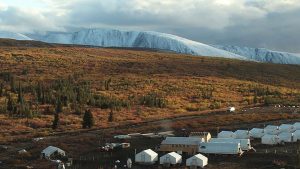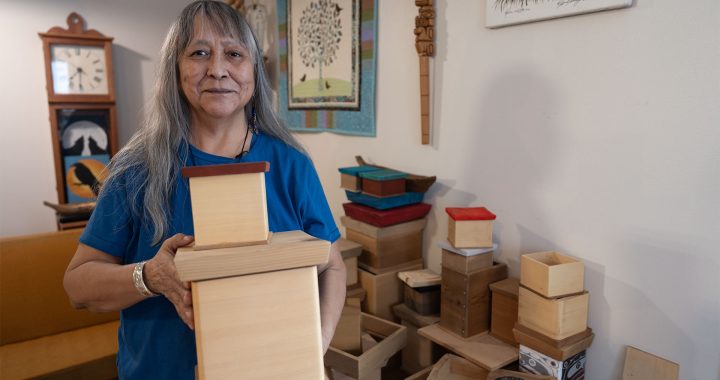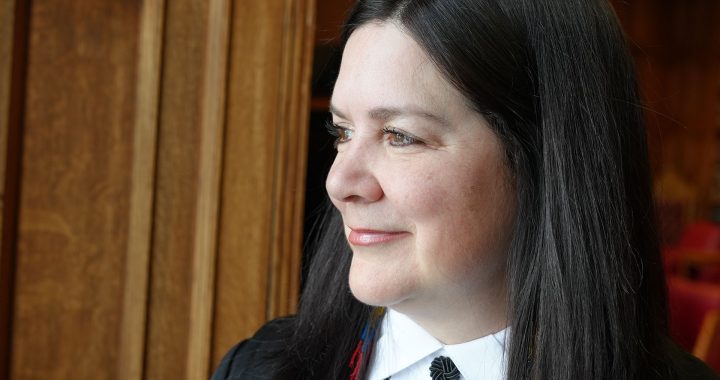The Kaska Nation is celebrating a recent court decision that will see a proposed mining project on its asserted territory paused until it undergoes further consultation.
A Dec. 6 written decision by the Yukon Court of Appeal found the territorial and federal governments, which are decision bodies for BMC Minerals’ Kudz Ze Kayah project, failed to properly consult with the Kaska on the project’s economic feasibility.
“We felt a relief. We felt, you know, happy with the Court of Appeal’s decision,” said Ross River Dena Council (RRDC) Chief Dylan Loblaw, which launched the appeal earlier this year on behalf of the Kaska Nation.
The $381 million open-pit copper, lead, zinc, gold and silver mine, located 115 kilometres south of the Yukon community of Ross River, lies within the range of the Finlayson caribou herd, a traditional food source for the Kaska.
In June 2022, the governments gave the mine the green light to proceed to the next stage in the approval process.
But the Kaska said the governments failed to properly consult with them before making a decision and filed a judicial review the following month.
Yukon Supreme Court Chief Justice Suzanne Duncan said in a decision released earlier this year that the governments mostly upheld their duty to consult.
However, she ordered the decision document allowing the project to proceed to the regulatory process be set aside to allow for a consultation meeting regarding a last-minute submission by the Kaska just hours before the mine was approved to proceed.
A revised decision document released following Duncan’s ruling again recommended that the project be able to proceed.
But the Kaska appealed, arguing Duncan erred in her decision.

During a two-day hearing in the territory’s appeal court in September, lawyers for the Kaska said the governments failed to consult them on the project’s economic feasibility before approving the mine to the regulatory phase.
But the governments argued the Yukon Environmental and Socio-economic Assessment Act (YESAA) doesn’t include provisions for economic feasibility.
Canada argued the issue would be discussed at greater length during the regulatory phase and during permitting, while the territory claimed economic feasibility isn’t relevant to the Kaska’s asserted Aboriginal rights, though they were consulted on the project’s impact on asserted Aboriginal rights.
But Yukon Court of Appeal Justice Susan Griffin, along with Justices Susan Charlesworth and Bruce Butler, disagreed.
“In my view, it was unreasonable for the Decision Bodies to conclude that the YESAA process did not include consultation with First Nations on the topic of economic feasibility,” Griffin wrote.
“It was unreasonable for the Decision Bodies to refuse to consider this topic meaningfully and to not engage in dialogue with Kaska before deciding to approve the project. It was not enough for the Decision Bodies to listen to the concerns and defer consideration of this issue to the post-approval stage. Deep consultation required a dialogue before the approval.”
The decision set aside Duncan’s ruling and ordered that the governments consult the Kaska about the project’s economic feasibility.
After that consultation takes place, the governments will then re-issue a decision.
Loblaw said there’s still “uncertainty” about the economic feasibility of the project. He’s glad the ruling will provide greater clarity.
“Seeing something like this go through an area that’s so sacred to us…(there’s) a lot of risk that we’re taking,” he said.
Allan Nixon, vice president- external affairs for BMC Minerals, said he was disappointed the project will be delayed but respects the court’s decision.
“We’ve always been of the view that we want to have all the questions answered and everyone heard, especially the Kaska,” he said. “We think it’s a good thing, and let’s answer these questions to make sure that everyone is comfortable with where the project’s at.”
Nixon noted the company has refined the project’s economic model and he’s confident it will be successful.
“We know we have a very good project,” he said.
The decision also garnered a response from the Yukon Chamber of Mines which expressed frustration about the project’s delay.
“We urge the federal and territorial governments to expedite the court-ordered consultations and show that the Yukon is serious about establishing certainty and leadership in project permitting,” said Executive Director Jonas Smith.
Natural Resources Canada, which is a decision body for the mine along with the Department of Fisheries and Oceans, said in a statement its reviewing the decision and determining next steps.
“The Government of Canada values its relationship with the Kaska First Nation, and we are committed to consultation and moving forward productively,” a spokesperson said.
The Yukon government did not provide a response by deadline.










